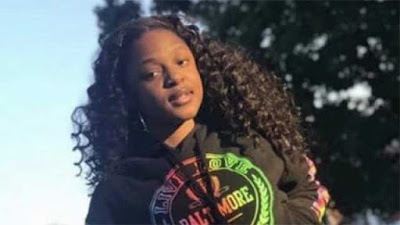A State of Emergency: We Can End the Violence
On May 30, 2020, Ala’junaye Davis, sixteen year
African American honor student, was shot and killed in the early morning on the
2100 block of Wilkens Avenue. Forty
minutes later, Stephen Pendergarst, a 31 year old African American man, was
killed. I was saddened and enraged to read yet another story about young people
being killed in our city. Ala’junaye
reminded me of my own daughter.
While life gradually returns to normal following the
COVID-19 pandemic, Baltimore is still plagued by a homicide epidemic. For the past five years, over 300 people have
been shot and killed in Baltimore each year.
Last year was the second deadliest year on record. Despite the ongoing COVID-19 pandemic and the
accompanying stay-at-home orders and closure of businesses, Baltimore's homicide
rate is outpacing last year’s homicide rate.
So far, as noted in the Baltimore Sun, 135 people were killed in
Baltimore this year. At this same time
last year, 128 were killed. The violence
continues to loom over the city like a dark cloud. Clearly, the political establishment has
failed us. The education system has failed us. By turning a blind eye and
clinging to the stop snitching code, we have failed ourselves.
Sadly, many of us have become desensitized to
violence. Thousands of people are not marching on City Hall demanding an end to
the violence. Instead of voting for
change, we vote for the same recycled politicians expecting new results. There is no overwhelming sense of
urgency. We have come to accept the
violence as normal. Many believe that the
violence is a permanent fixture in Baltimore’s landscape. For them, the thought
of ending the violence is viewed as an unattainable fantasy or dream. However, many of us refuse to accept this
violence as normal. We must treat this
crisis as a state of emergency.
There are sincere community groups that are trying to
stop the violence. However, with all due
respect, we need far more than vigils, social media posts, signs and sage. We
must intervene before our young people get trapped into a life of crime and violence. We must wage a war on
poverty with the same intensity as the War of Drugs. Aside from tough-on-crime policies targeting
and locking about repeat violent criminals who terrorize our community, we need
to enact effective comprehensive legislation that will finally address the root
causes of the problem. Some of those causes are poverty, inadequate education,
youth unemployment, drugs, and absence of positive role models and the lack of
opportunity.
Modeled after a program that substantially reduced the
violence in Oakland, California, the legislation would do four things. First, the legislation should identify
at-risk youth that likely to become victims of violence or perpetrators of
violence. Second, the legislation should
establish lines of communication with those at-risk youth. Third, the legislation should provide at-risk
youth with the lifesaving services that they need to survive such as trauma counseling,
mentor programs, college preparation programs, college scholarships, vocation
programs, and jobs. We can increase youth employment by expanding Youth Works
into a year around program. Under the
legislation, at-risk youth would connected with existing programs. Where necessary, the legislation would create
new programs or expand existing programs as well. When our young people have quality education,
employment and opportunities to thrive and prosper, they are less likely to be
engaged in criminal activity.
Finally, the legislation should call for increased
funding to effective anti-violence groups. For instance, community groups were
able to reduce the violence in Cherry Hill down to virtually zero murders last
year. They were able to reduce the
violence by intervening and diffusing conflict in the neighborhood. If such programs had more funding, we would
be able to see a substantial reduction in the violence. Similar to what Newark Mayor Ras Baraka did,
our next mayor, in conjunction with African American Men Engagement, the Nation
of Islam and credible grassroots community groups, should organize a peace
summit with rival gangs and groups to end the violence. If nations at war can negotiate peace, surely
local gangs can as well. If we have the
will, we can end the violence in our city.



Comments
Post a Comment